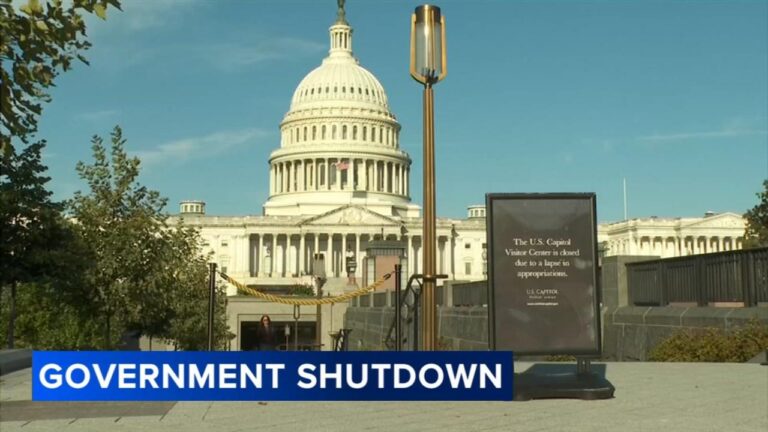Philadelphia Grapples with Federal Shutdown: Local Impacts and Coping Strategies
Disruptions in Municipal Services and Public Safety Operations
As the federal government shutdown extends into its second week, Philadelphia’s municipal services are beginning to experience noticeable interruptions. Routine city functions such as waste collection and permit issuance are facing delays, causing inconvenience for residents and businesses alike. While vital child welfare programs continue to operate, they are stretched thin due to limited staffing and resources. Community hubs like public libraries and recreation centers may reduce their hours or temporarily close, limiting access to educational and social activities.
Public safety remains a critical focus, yet funding constraints threaten to impact non-emergency services and outreach initiatives. Police and fire departments continue to respond to emergencies, but some community programs may be scaled back. Emergency management officials are actively developing contingency plans to ensure readiness throughout the shutdown period.
- Waste Management: Trash collection schedules may be reduced.
- Permit Processing: Delays expected in business and construction approvals.
- Libraries and Recreation: Possible shortened hours or temporary closures.
- Emergency Services: Emergency response maintained; non-urgent services limited.
| Service | Anticipated Effect | Mitigation Efforts |
|---|---|---|
| Waste Collection | Reduced frequency | Focus on high-priority areas |
| Permit Office | Processing delays | Shift to online applications |
| Public Safety Programs | Cutbacks in community outreach | Prioritize emergency response |
| Libraries | Limited operating hours | Expand virtual offerings |
Economic Strain on Small Enterprises and Commuters
Philadelphia’s small business sector is feeling the financial pinch as federal operations stall. Many local companies depend on timely federal contracts and permits, and delays are causing project slowdowns and cash flow issues. Sectors such as hospitality, retail, and suppliers near federal offices are particularly vulnerable. Additionally, diminished pedestrian traffic around government buildings is leading to lower sales, exacerbating economic challenges.
Commuters relying on public transportation are also facing difficulties. With federal transit funding on hold, maintenance and service reliability are compromised, resulting in increased delays and reduced routes. This disproportionately affects workers who depend on public transit, forcing some to seek alternative transportation or adjust their schedules. These disruptions not only strain individual finances but also impact employers who rely on punctual staff.
- Delayed federal contracts stall business growth.
- Lower customer traffic near government facilities.
- Reduced public transit services complicate commuting.
- Higher transportation expenses for daily riders.
| Industry | Expected Impact | Estimated Duration |
|---|---|---|
| Small Retailers | Revenue drops, permit delays | Several weeks to months |
| Public Transit | Service interruptions, fewer routes | Days to weeks |
| Local Suppliers | Contract postponements | Weeks |
Understanding Federal Aid Availability Amid the Shutdown
Federal assistance programs are experiencing varying degrees of disruption during the shutdown, making it crucial for Philadelphia residents and businesses to stay updated. Programs like the Supplemental Nutrition Assistance Program (SNAP), unemployment benefits, and Small Business Administration (SBA) loans may face processing delays or temporary halts, impacting household stability and business operations. Monitoring official updates and leveraging local support networks can help bridge these gaps.
Residents should focus on resources that remain accessible or partially funded, including:
- Local food banks and charitable organizations providing emergency nutrition support.
- State unemployment offices managing claims processing.
- Philadelphia city social services offering community assistance.
| Program | Operational Status | Potential Effects |
|---|---|---|
| SNAP | Temporary continuation possible | Delays in new applications likely |
| SBA Loans | Paused | Funding delays, cash flow issues |
| Unemployment Benefits | State-dependent | Possible processing slowdowns |
| Federal Housing Aid | Limited operations | Extended wait times |
Engaging with local nonprofits and community groups can provide vital interim support during this period of federal uncertainty.
Practical Approaches for Residents to Alleviate Financial Pressure
Individuals and families affected by the shutdown can adopt several measures to manage financial stress. Prioritizing essential expenses such as housing, utilities, and food is critical. Exploring supplementary income options, including freelance or gig work, can help offset lost earnings. Additionally, connecting with local aid organizations may unlock emergency resources tailored to those impacted by the shutdown.
Recommended actions include:
- Negotiating flexible payment arrangements with creditors.
- Utilizing food assistance programs and community support services.
- Applying for short-term relief from operational government programs.
- Cutting back on non-essential spending until income stabilizes.
| Organization | Service Provided | Contact Information |
|---|---|---|
| Philadelphia Food Bank | Food Assistance | (215) 123-4567 |
| Community Action Agency | Financial Support | www.communityactionphilly.org |
| Legal Aid Society | Debt Counseling | (215) 765-4321 |
Final Thoughts: Preparing for Continued Uncertainty
With no resolution to the federal government shutdown in sight, Philadelphia’s residents and businesses must navigate ongoing disruptions and economic challenges. From delayed municipal services to strained local economies, the community faces a period of adjustment and resilience. Staying informed through reliable sources and utilizing available local resources will be key to weathering the impacts of this federal stalemate. NBC10 Philadelphia remains dedicated to providing timely updates on how these developments affect the region’s daily life and economic well-being.








